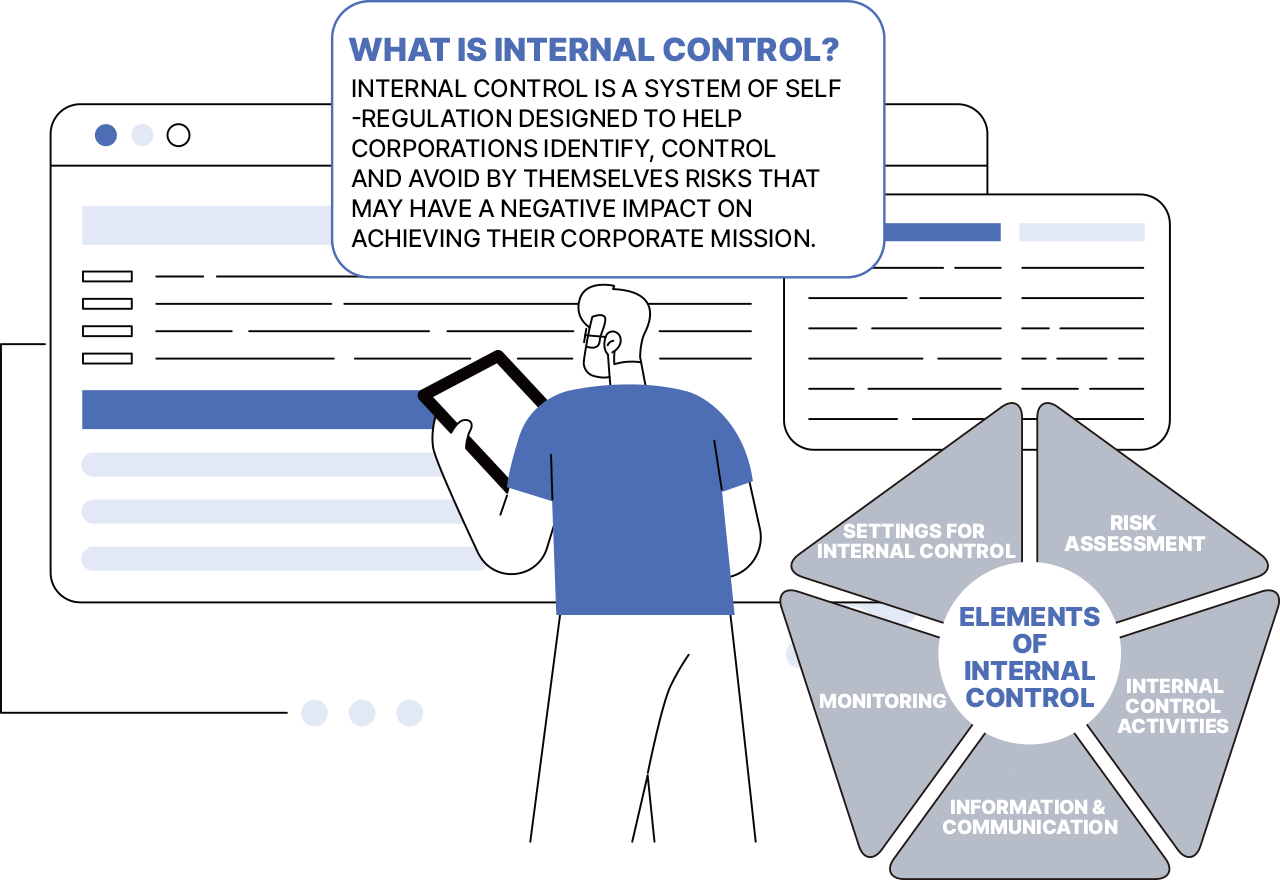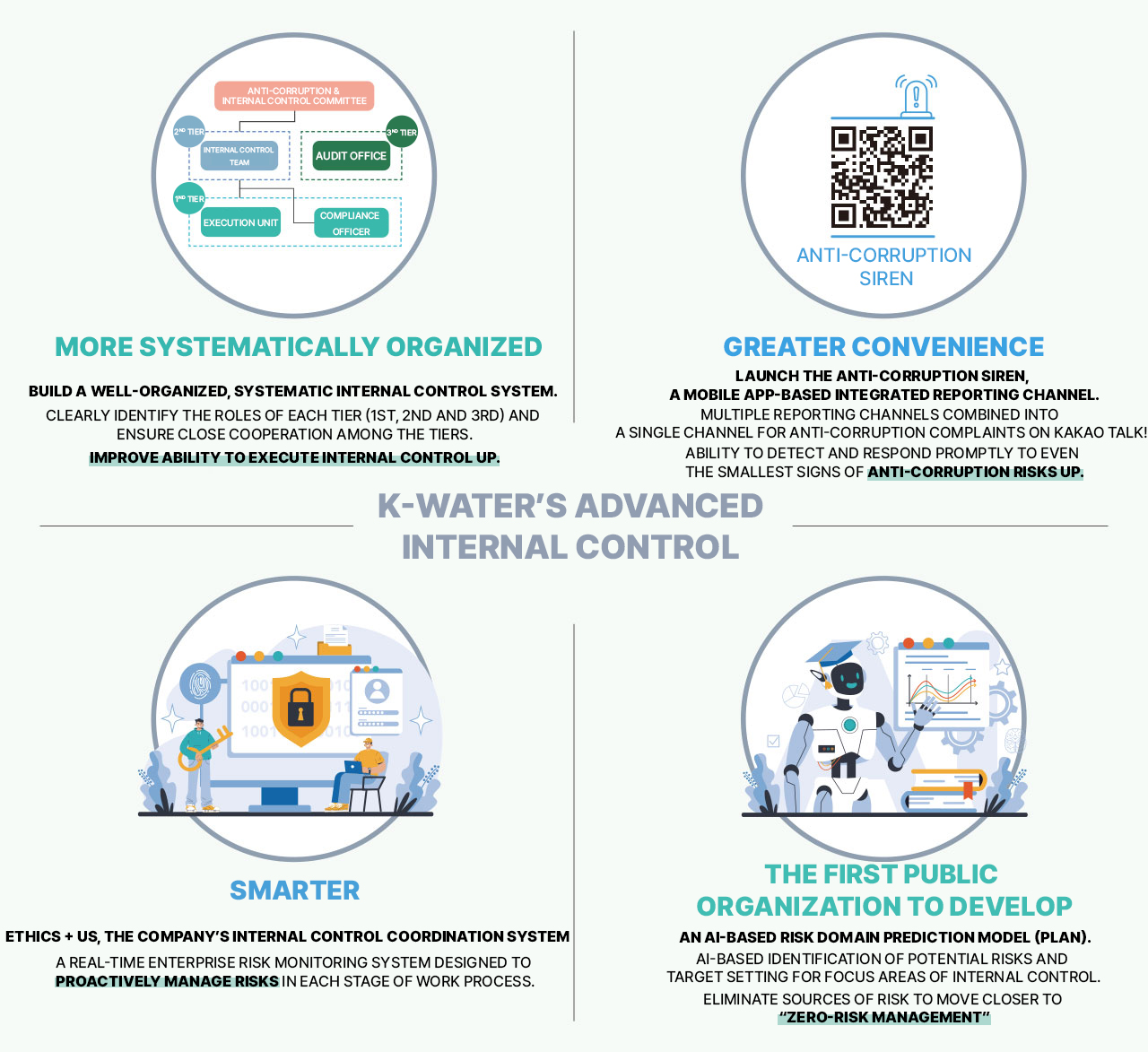Live on 2
Nipping risks in the bud through strict risk management
Tightened internal control
In order to secure its status as a trusted corporation, it is crucial to identify and control the risk factors inherent in all aspects of corporate activities in a proactive manner. With a system of internal control in place to facilitate innovation and sustainable growth, K-water is moving one step closer to “zero operational risks”.
📝Text by. Editorial Team / 💾Sources. Management & Innovation Services Department of K-water


Risks Down, Effectiveness Up!
Internal control is a system of self-regulation designed to help corporations identify, control and avoid by themselves risks that may have a negative impact on their ability to achieve their corporate mission. By implementing internal control, corporations can better comply with the laws and regulations, reduce their financial and non-financial losses, and earn public trust. In this sense, internal control is becoming an increasingly important feature of the corporate landscape.
K-water is conducting a wide range of activities for effective internal control in order to build a solid corporate culture of anti-corruption and transparent ethics management. Particularly noteworthy in his regard is its move to embrace the changing trend of internal control and adopt a digitalized internal control system, thereby further improving the effectiveness and accuracy of its internal control activities. A case in point is ‘Ethics + US’, the company’s internal control coordination system, which allows K-water to control risks proactively and voluntarily by monitoring risks enterprise-wide. Furthermore, K-water is the first public organization to initiate the development of an AI-based risk domain analysis model. Once completed, the model will help K-water to remove sources of risk by analyzing data, including cases of disciplinary actions and survey results, and to set targets for focused control.

